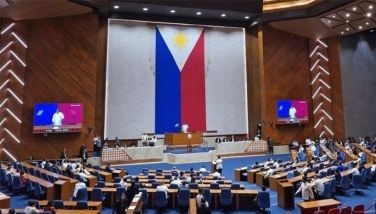Polarized
With profound societal divisions that have molded our national identity, our nation has a long history of polarization. Conflicting collective beliefs that cut across different religions and cultural backgrounds are frequently the root cause of these divisions. Such significant differences weaken social cohesiveness by fostering an atmosphere where ongoing conflict between groups flourishes. These underlying differences impede our collective progress as well as cause strife within communities as they continue to fester. It becomes imperative that we confront these divisions with understanding and empathy to forge a more united society.
Elections poignantly expose societal divisions as differing political allegiances fracture bonds between friends and family. These clashing viewpoints often ignite interpersonal tension, with passionate advocacy for candidates escalating into heated exchanges. During these periods, the deeply-held convictions that underlie our views on leadership and governance are glaringly exposed. It takes patience, empathy, and a strong commitment to maintaining relational harmony to navigate such political strife successfully.
We tend to prioritize information that supports our preexisting beliefs because our current viewpoints often reflect our affiliations and the groups we identify with. We may become trapped in echo chambers as a result of this tendency, ignoring any opposing views that might contradict our own. As a result, this selective information intake hinders critical thinking and open communication, erecting obstacles to comprehension. We must actively seek out different viewpoints and have meaningful, productive discussions in order to develop a more nuanced and balanced understanding of complex issues. Adopting this strategy enhances our interactions, expands our horizons, and promotes a respectful and empathetic culture.
We should base our opinions, views, and beliefs on facts rather than misinformation meant to support our own preferences. Since this basis is necessary for fruitful discourse, it is imperative that we give truth and accuracy top priority in our conversations. A key tactic in the fight against false information is to rely on reliable sources so that our opinions are well-informed and not swayed by prejudice. We can encourage healthier discussions and help create a more informed society by prioritizing facts over opinions. In the end, our dedication to integrity will improve the unity required to tackle difficult problems as a group while also fortifying our understanding of one another.
We need to develop a mindset that pushes us to open our hearts and minds. By taking a deliberate approach, we are better equipped to discern fact from fiction and make informed decisions in all facets of our lives. Actively challenging our own prejudices and seeking out different viewpoints is crucial because doing so deepens our comprehension of intricate problems. We can prevent ourselves from being influenced by erroneous assumptions and beliefs that impair our judgment by making critical thinking a priority. Adopting this perspective will help us make more deliberate decisions and promote a stronger sense of community cohesion.
In the end, our love for one another and our nation ought to be our compass when negotiating the challenges of life. Particularly during periods of conflict and division, this deep love has the capacity to serve as a potent unifying force. We can overcome our differences and work together to achieve a shared objective that is advantageous to everyone if we put compassion and understanding first. Let us be motivated by this love to build a more robust and inclusive society where everyone's opinions are respected. Our dedication to one another will ultimately serve as the foundation for our group's success, enabling us to triumph harmoniously.
- Latest























